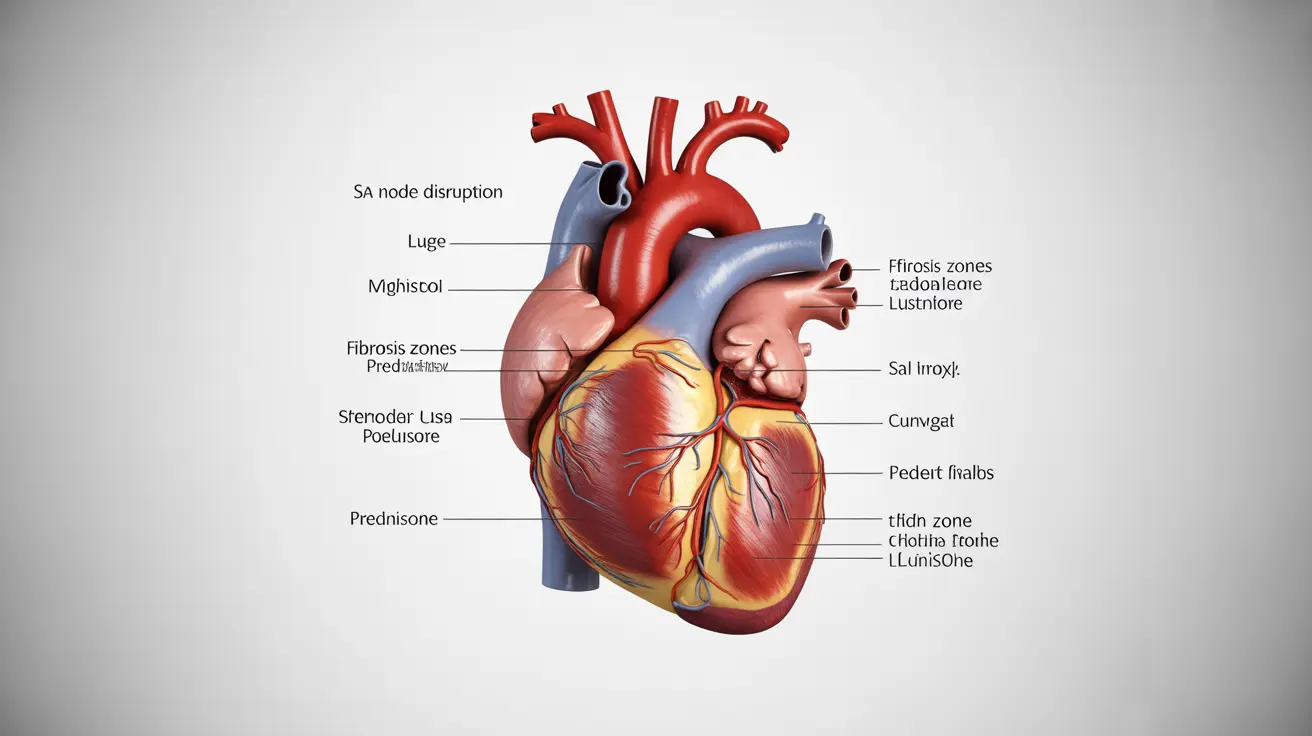Many people taking steroid medications report experiencing heart palpitations, which can be concerning and sometimes frightening. Understanding the relationship between steroids and heart rhythm disturbances is crucial for anyone prescribed these medications, whether for inflammatory conditions, autoimmune disorders, or other medical purposes.
In this comprehensive guide, we'll explore how steroids can affect your heart rhythm, what symptoms to watch for, and important steps to protect your cardiovascular health while taking these medications.
How Steroids Affect Heart Function
Steroids, particularly corticosteroids like prednisone, can significantly impact your cardiovascular system. These medications can affect your heart's rhythm by influencing several bodily mechanisms:
- Increased sodium retention
- Elevated blood pressure
- Enhanced sensitivity to stress hormones
- Altered electrolyte balance
- Changes in blood sugar levels
These effects can manifest as noticeable changes in your heart's rhythm and rate, potentially leading to palpitations and other cardiovascular symptoms.
Common Symptoms of Steroid-Related Heart Palpitations
When steroids affect your heart rhythm, you may experience various symptoms:
- Feeling of skipped or extra heartbeats
- Racing heart sensation
- Fluttering in the chest
- Pounding heartbeat
- Chest discomfort
- Anxiety or nervousness
- Shortness of breath
Understanding the Risks of Long-Term Steroid Use
Extended steroid use, especially at higher doses, can lead to several cardiovascular complications:
- Chronic hypertension
- Increased risk of blood clots
- Heart muscle changes
- Accelerated atherosclerosis
- Greater risk of heart failure
These risks make it essential to work closely with your healthcare provider and monitor your heart health while on steroid therapy.
Managing Heart Palpitations While Taking Steroids
Several strategies can help minimize the impact of steroids on your heart rhythm:
- Take medications exactly as prescribed
- Monitor your blood pressure regularly
- Track and record palpitation episodes
- Maintain consistent sleep patterns
- Practice stress-reduction techniques
- Stay well-hydrated
- Consider taking medications earlier in the day
Lifestyle Modifications for Heart Health
Making certain lifestyle changes can help protect your heart while taking steroids:
- Limit caffeine intake
- Reduce sodium consumption
- Maintain regular physical activity (as approved by your doctor)
- Practice relaxation techniques
- Get adequate sleep
- Avoid alcohol and smoking
- Monitor and manage stress levels
Frequently Asked Questions
Can steroid use cause heart palpitations, and what are the symptoms?
Yes, steroid use can cause heart palpitations. Common symptoms include racing heartbeat, fluttering sensations in the chest, skipped beats, and pounding heart sensations. These effects typically occur due to the medication's impact on the body's sodium balance and stress hormone sensitivity.
How do corticosteroids like prednisone affect heart rate and rhythm?
Corticosteroids can affect heart rate and rhythm by altering electrolyte balance, increasing blood pressure, and enhancing the body's sensitivity to stress hormones. This can lead to temporary changes in heart rhythm and occasional palpitations.
What are the long-term heart risks associated with taking steroids, especially at high doses?
Long-term steroid use at high doses can increase risks of hypertension, atherosclerosis, heart failure, and blood clots. Regular monitoring and appropriate dose management are essential to minimize these risks.
How can you manage or reduce heart palpitations caused by steroid medications like prednisone?
Management strategies include taking medications as prescribed, monitoring blood pressure, staying hydrated, limiting caffeine, and practicing stress-reduction techniques. Timing medication doses earlier in the day can also help reduce nighttime palpitations.
What lifestyle changes can help protect heart health when taking steroids for medical conditions?
Important lifestyle changes include maintaining a heart-healthy diet low in sodium, regular exercise as approved by your doctor, stress management, adequate sleep, and avoiding stimulants like caffeine and alcohol. Regular medical monitoring is also crucial.




